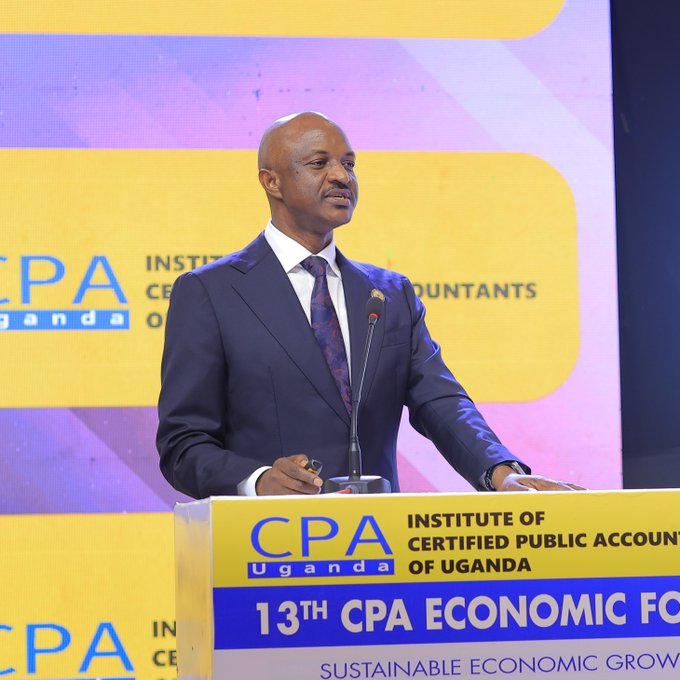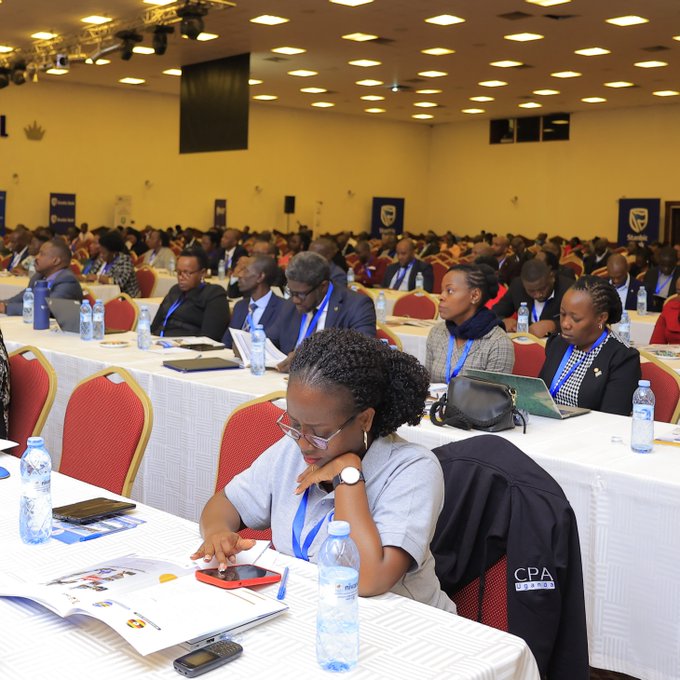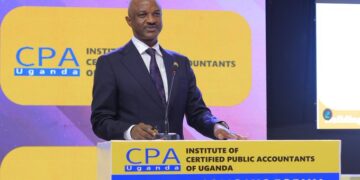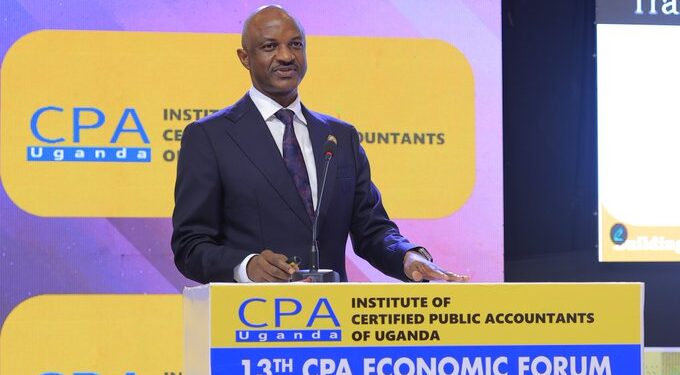Entebbe — Uganda’s economic transformation hinges on how it manages its rapidly urbanising population, reimagines housing as a growth driver, and positions green development at the centre of its economic strategy.
This was the core message delivered by Ramathan Ggoobi, Permanent Secretary and Secretary to the Treasury, during his keynote address at the 13th CPA Economic Forum held at the Imperial Resort Beach Hotel in Entebbe and organised by the Institute of Certified Public Accountants of Uganda (ICPAU).
Although only 27% of Uganda’s population currently lives in urban areas, Ggoobi pointed out that this number is rising fast, driven by rural-urban migration and demographic growth. “We must not see cities as mere population sinks,” he urged. “They must become engines of transformation.”
Housing: Not Just Shelter, But Strategy
Ggoobi highlighted Uganda’s housing crisis as both a challenge and a critical opportunity. While residential construction and rental services contributed 11% to Uganda’s GDP in 2018, the sector is failing to meet the needs of ordinary urban households. About 68% of urban dwellers earn less than UGX 1 million per month, yet housing remains priced far beyond their reach.

“This is not sustainable,” he said. “We need truly affordable housing solutions—not only for dignity but for development.” Ggoobi underscored that well-planned, inclusive housing isn’t just a social issue; it has the potential to drive domestic demand, boost productivity, and expand regional trade.
He proposed linking the construction sector to global competitiveness by promoting the local manufacturing of building materials. “When we build homes with Ugandan cement, steel, and tiles, we’re not just building houses—we’re building industries.”
Greening Construction to Tackle Climate Risk
Ggoobi issued a stark warning about the environmental cost of poor planning and conventional building practices. The real estate sector contributes up to 40% of Uganda’s greenhouse gas emissions, making it a major source of climate risk.
“We must green our construction sector—with innovation, low-carbon materials, and policy incentives,” he urged. “Sustainable growth begins with a healthy, empowered population and a healthy planet.”
Urban Planning Is Now Economic Planning
To cope with urban growth and make cities productive, Ggoobi called for integrated land use planning, coordinating infrastructure, zoning, and commodity value chains. He referenced the Area-Based Commodity Development (ABCD) model, which aligns regions with specific export baskets to raise productivity and unlock district-level transformation.

“Our cities must drive innovation, creative industries, and competitiveness,” he said. “Growth must be smart, green, and inclusive.”
From Passive Observer to Economic Shaper
Ggoobi celebrated a major national milestone: Uganda’s 2024 graduation from the UN’s Least Developed Countries (LDC) group. “We’re no longer passive observers of global change,” he declared. “We are shaping our own story through vision, leadership, and execution.”
He attributed Uganda’s current trajectory to sound fiscal policy, disciplined investment, and inclusive planning. GDP per capita is projected to reach USD 1,324 this year and could rise to nearly USD 3,000 by 2030. But he stressed that a third of Uganda’s USD 500 billion economic potential lies in unlocking human capital.
“Labour productivity is the elephant in the room,” Ggoobi warned. “We must fix gaps in education, health, and skills if we want meaningful growth.”
He cited troubling statistics: 70% of deaths in Uganda’s health facilities are preventable. “This is not just a health crisis—it’s a productivity trap,” he said. “We must treat health as economic infrastructure.”

Private Investment and FDI: Fuel for the Future
To build on recent gains, Ggoobi urged greater mobilisation of domestic savings and scaling up foreign direct investment (FDI). Uganda aims to grow merchandise exports from 17% to 30% of GDP by 2030, with FDI inflows expected to reach USD 4 billion.
“To attract and retain investors, we must double down on infrastructure, logistics, and regional trade competitiveness,” he explained. “Private capital is the fuel for our transformation.”
Ggoobi’s address ended with a firm challenge to policymakers, planners, and citizens alike. “The future is not given—it is created,” he declared. “If we invest wisely in our people, our cities, and our green economy, Uganda can build a legacy of inclusive, sustainable growth for generations.”
With urbanisation accelerating at 5.6% annually, the stakes are high. But Ggoobi’s message was one of grounded optimism: transformation isn’t magic—it’s the result of smart, long-term decisions.









